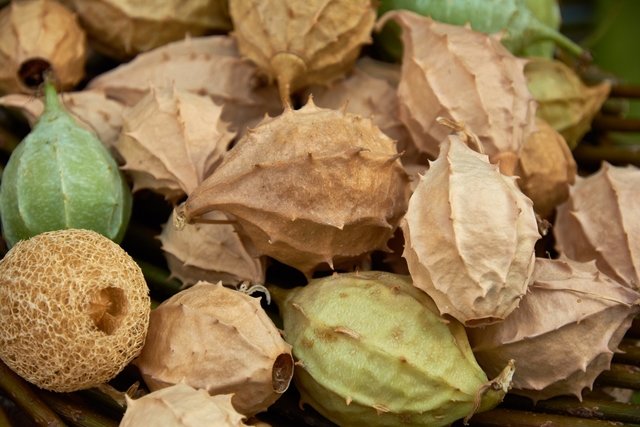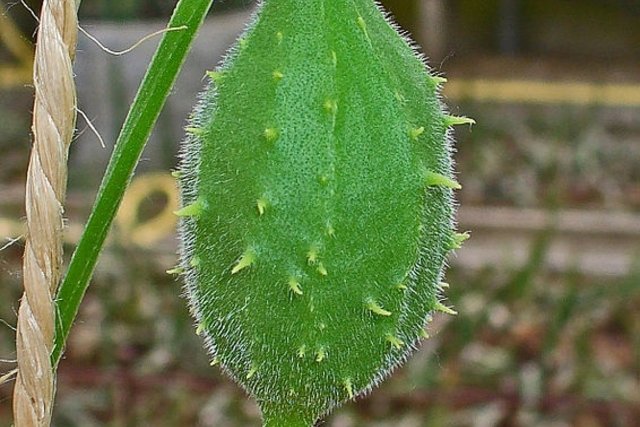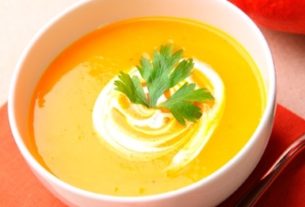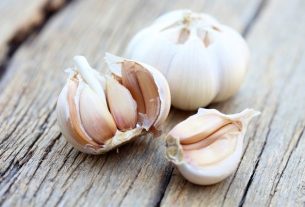Buchinha-do-norte is a medicinal plant, of the species Luffa operculata, Widely used to help treat sinusitis and rhinitis, it reduces nasal swelling and has an expectorant and antiseptic action.
The used part of this medicinal plant, which is also known as zucchini-do-norte, gourd, buchinha or purge, is the dried ripe fruit, which has a fibrous structure with the appearance of a loofah or sponge.
Loofah-do-norte can be found in health food stores or compounding pharmacies, however it is important that it is only used under the guidance of a doctor, as it can cause miscarriage when used during pregnancy, in addition to being a highly toxic and which can have health consequences when consumed in large quantities or frequently.

What is it for
The northern bush is recommended for:
- Sinusitis or rhinosinusitis;
- Allergic rhinitis;
- Gripes;
- Headache;
- Skin wounds.
Northern loofah is rich in triterpenes, cucurbitacin D and isocurcubitacin D, with antiseptic and expectorant properties, which help promote the elimination of bacteria, such as streptococci or staphylococci, which cause respiratory problems and promote the release of mucus.
In addition, northern buchinha also has antiherpetic, astringent, diuretic, vermifuge and emetic action, so this plant could also be used to help treat parasite infection, ascites or herpes virus infection.
However, despite having health benefits, more studies are still needed to prove its effects on humans, as most studies were carried out with rats or cells in the laboratory.
It is important that the use of buchinha-do-norte is recommended by a doctor or herbalist, because it is quite toxic, especially the fruit, and can cause abdominal pain, nausea, vomiting and bleeding, which can put life at risk.
The use of the northern buchinha must be done according to instructions, It is not recommended to consume the fruit raw, as it is toxic.
Thus, one of the ways of consumption is through water or aqueous extract of buchinha-do-norte, which can be used to drip into the nose in case of sinusitis or wash wounds, for example.
Ingredients
- ¼ of the dry fruit of the northern buchinha;
- 500 mL of filtered water.
Preparation mode
Break the dry fruit of buchinha-do-norte into 4 parts. Place a cut part, that is, ¼ of the dry fruit of the northern buchinha in filtered water and let it rest for 1 day. The next day, the water should be changed, discarding the water in which the northern loofah was, and adding another 500 mL of filtered water. Repeat this procedure for 9 days in a row.
On the 9th day, remove the fruit from the water and drip 2 drops of this aqueous extract into each nostril, for a maximum of 4 consecutive days, or as per medical advice.
Risks of the northern buchinha
The main risks of northern buchinha are nasal irritation or bleeding, changes in smell or even death of nose tissue, especially when the prepared aqueous solution is very concentrated or is used frequently. Therefore, it is important to change the preparation water for 9 days.
Loofah-do-norte should not be consumed orally or used frequently or in large concentrations, as it is a highly toxic plant, causing symptoms such as nausea, severe cramps or bleeding.
This hemorrhage can result in a decrease in the amount of fluid in the body and the accumulation of toxins in the circulation, resulting in shock, which can put the person’s life at risk. Learn more about shock.
According to studies, 1 g of northern buchinha results in toxic effects for an adult weighing 70 kg, therefore, it is important that this plant is only used if there is a medical recommendation.
Is the northern buchinha abortifacient?
Northern buchinha is abortifacient since the cucurbitacin present in its composition is capable of stimulating uterine contractions, bleeding and intense hemorrhages, when used during pregnancy.
Furthermore, as it is a highly toxic plant, it can cause poisoning in pregnant women and put their lives at risk.
Northern buchinha also has a toxic effect on the embryo or fetus, which can cause serious changes in the baby’s development and result in fetal malformations, for example.
That’s why, the use of northern buchinha is contraindicated in the case of suspected or confirmed pregnancy. See other medicinal plants contraindicated in pregnancy.
Who shouldn’t use
Northern buchinha should not be used by children, pregnant or breastfeeding women.
It is important to highlight that, as it is a highly toxic plant, the use of northern buchinha should only be done with medical advice and guidance.

Sign up for our newsletter and stay up to date with exclusive news
that can transform your routine!
Warning: Undefined array key "title" in /home/storelat/public_html/wp-content/plugins/link-whisper-premium/templates/frontend/related-posts.php on line 12
Warning: Undefined array key "title_tag" in /home/storelat/public_html/wp-content/plugins/link-whisper-premium/templates/frontend/related-posts.php on line 13




